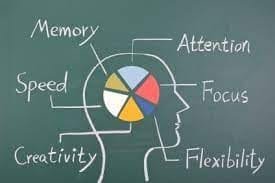Mastering Concentration & Focus Strategies for Enhanced Productivity and Mental Clarity
In today’s fast-paced world filled with distractions and demands, maintaining concentration and focus has become increasingly challenging. Whether you’re studying for an exam, tackling a work project, or pursuing personal goals, the ability to stay focused is essential for productivity and success. In this comprehensive guide, we’ll explore the science behind concentration and focus, common challenges that affect our ability to stay on task, and practical strategies to sharpen your mental clarity and boost productivity.
Understanding Concentration and Focus
Concentration and focus refer to the ability to direct one’s attention and cognitive resources toward a specific task or goal while filtering out distractions. These mental faculties are essential for accomplishing tasks efficiently, retaining information, problem-solving, and achieving optimal performance in various domains.
From a neurological perspective, concentration and focus involve the activation of specific brain regions associated with attention and cognitive control. The prefrontal cortex, in particular, plays a central role in regulating attention, inhibiting irrelevant stimuli, and sustaining focus over time.
Common Challenges to Concentration and Focus
Despite its importance, maintaining concentration and focus can be difficult due to various internal and external factors. Some common challenges include:
- Digital Distractions: The ubiquitous presence of smartphones, social media, email notifications, and other digital devices can disrupt our focus and pull us away from important tasks.
- Multitasking: While often praised as a valuable skill, multitasking can actually impair concentration and productivity by dividing attention and reducing cognitive efficiency.
- Fatigue and Stress: Mental fatigue, lack of sleep, and high levels of stress can diminish cognitive function and make it harder to concentrate on tasks.
- Environmental Factors: Noise, clutter, interruptions, and uncomfortable workspaces can hinder concentration and disrupt flow states.
- Lack of Interest or Motivation: Difficulty concentrating may stem from a lack of intrinsic motivation or genuine interest in the task at hand.
Strategies for Enhancing Concentration and Focus
Fortunately, there are several evidence-based strategies that can help improve concentration and focus, allowing you to work more effectively and efficiently. Here are some practical tips to enhance your mental clarity and boost productivity:
1. Create a Distraction-Free Environment
- Designate a quiet, clutter-free workspace conducive to concentration.
- Minimize distractions by silencing notifications, closing unnecessary tabs or applications, and setting boundaries with colleagues or family members.
- Consider using productivity tools such as website blockers or time-tracking apps to help stay focused.
2. Practice Mindfulness Meditation
- Incorporate mindfulness meditation into your daily routine to train attention and cultivate present-moment awareness.
- Set aside dedicated time each day to practice mindfulness techniques such as focused breathing, body scans, or guided meditation.
- Use mindfulness to anchor your attention to the present moment and gently redirect it when distractions arise.
3. Break Tasks Into Manageable Chunks
- Break larger tasks or projects into smaller, actionable steps to avoid feeling overwhelmed and maintain momentum.
- Prioritize tasks based on urgency and importance, focusing on one task at a time rather than attempting to juggle multiple tasks simultaneously.
- Use techniques such as the Pomodoro Technique, which involves working in focused intervals (e.g., 25 minutes) followed by short breaks to sustain concentration and prevent burnout.
4. Optimize Your Physical Health
- Get an adequate amount of sleep each night to support cognitive function, mood regulation, and overall well-being.
- Engage in regular physical exercise, which has been shown to enhance cognitive function, mood, and attentional control.
- Maintain a balanced diet rich in nutritious foods that support brain health, such as fruits, vegetables, whole grains, lean proteins, and omega-3 fatty acids.
5. Cultivate Interest and Engagement
- Find ways to make tasks more engaging and meaningful by connecting them to your values, interests, or long-term goals.
- Incorporate elements of challenge, novelty, and creativity into your work to stimulate cognitive engagement and intrinsic motivation.
- Set clear goals and establish a sense of purpose to maintain focus and momentum throughout the task.
6. Take Regular Breaks
- Schedule short breaks throughout the day to rest and recharge your mental energy.
- Use break time to engage in activities that promote relaxation and stress reduction, such as stretching, walking, or mindfulness practices.
- Avoid prolonged periods of uninterrupted work, as this can lead to mental fatigue and reduced cognitive performance.
Conclusion
Concentration and focus are foundational skills that are essential for success in both personal and professional endeavors. By understanding the factors that influence concentration, identifying common challenges, and implementing practical strategies for enhancing focus, you can sharpen your mental clarity, boost productivity, and achieve your goals more effectively. Experiment with different techniques to find what works best for you and remember that developing concentration and focus is a skill that can be cultivated and refined over time. With patience, persistence, and a proactive approach, you can master the art of concentration and unlock your full potential for success.
Thanks for visiting Gymbag4u.com
You may also love reading our following articles. The Power of Positivity: Exploring the Benefits of Positive Psychology – GymBag4U and Mental Health: Everything You Need to Know – GymBag4U and Mental Illness Research for Improving Mental Health – GymBag4U and The Benefits of Exercise for Mental Health – GymBag4U
